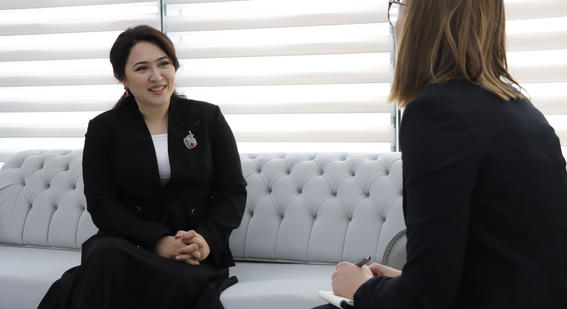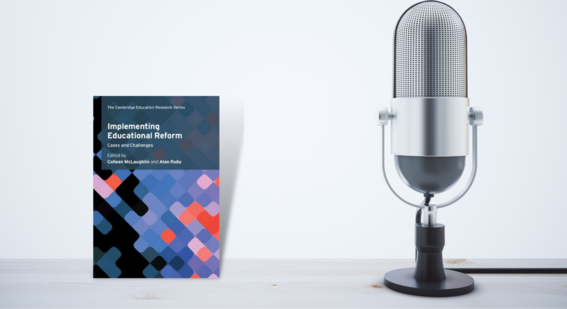A partnership for education in the Rohingya refugee camps
Cambridge Partnership for Education is working in partnership with UNICEF to support teaching and learning in the Rohingya refugee camps of Bangladesh. Amanda Harper, project manager at Cambridge, shares progress after a recent trip to the camps.
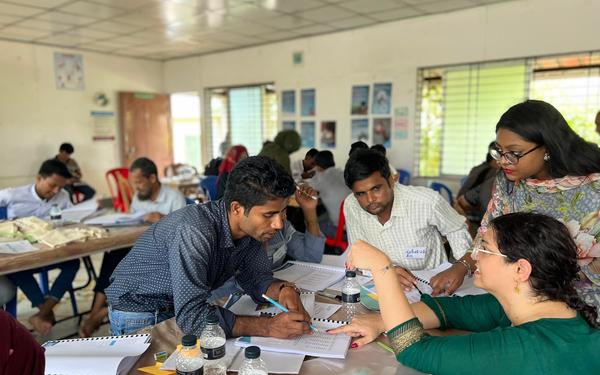
My first visit to the Rohingya refugee camps came almost exactly five years since the arrival in 2017 of hundreds of thousands of Rohingya refugees, almost 60% of whom were children.
The sprawling camps, in south eastern Bangladesh, comprise the world’s largest refugee settlement. They provide refuge to about half a million children from Myanmar, who face huge uncertainty about the future.
I was there in August 2022 in my role of project manager, as part of a team from Cambridge Partnership for Education.
For readers who aren’t aware, at Cambridge Partnership for Education we work closely with governments and international development organisations - in this case, UNICEF - to improve the quality of education systems. Ultimately, we draw on the expertise and resources of the university, and our own experts, on our goal of providing education excellence for everyone.
And nowhere is that need more acute than in the refugee camps of Cox’s Bazar. The Rohingya refugee children have a fundamental right to education and we’re working in collaboration with UNICEF and other partners to help make that a reality.
On our first day in the camps we had the chance to visit some of the classrooms and observe the classes. They were brightly painted, colourful learning environments, although without IT infrastructure or technology. As a project manager, it was hugely valuable to see our work in action, and spend time with our partners on the ground.
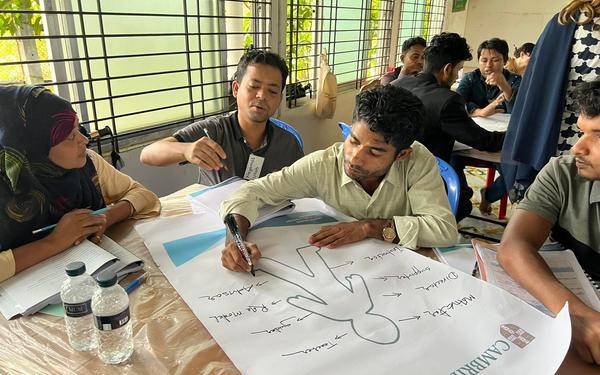
Future foundations
Although this was my first visit, my colleagues at Cambridge Partnership for Education had already been to the camps in 2019 and 2020. Part of their first task was to evaluate and identify challenges in education provision in the camps. The overall objective was to provide a coherent model for educating children within the camps, while also laying foundations for their future reintegration into a national education system.
As part of our earlier work, we identified that the most critical need was for teacher development, particularly in subject knowledge and pedagogic approach.
And teacher development was to form a major part of our trip in August. This included three days of providing training to Rohingya master trainers on learner assessment and effective teaching. The intention is for these master trainers to then go on and cascade this learning down to the teachers themselves.
Of course, these are challenging conditions to educate children. Electrical power is scarce, as are resources. But the teacher trainers I met were incredibly keen to learn and absorb as much as they could.
One of our training leads on the ground was Georgie Billings, who focused on assessment and sharing the assessment framework we developed at Cambridge. She said to me: “Everybody has been so engaged, so excited to learn new ideas, and really practical. They’ve dived into the activities and are showing that they’ve understood and have taken on those concepts.”
Previously in the camps we had identified an inconsistent approach to assessment, including little evidence of formative assessment being used in classrooms. So it was a fantastic step forward to introduce the assessment framework we developed and share how to implement it in the classroom.
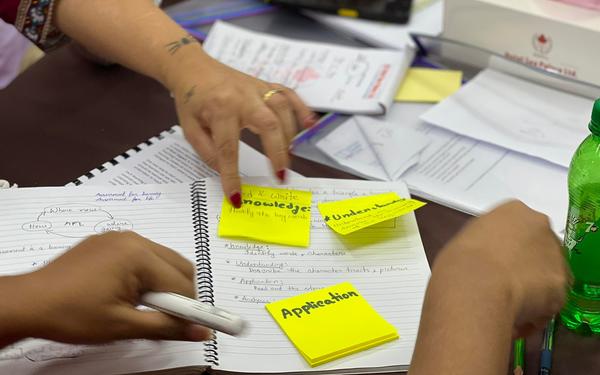
At Cambridge Partnership for Education, we collaborate with many different organisations, local and multinational. In the Rohingya camps, we work closely with Anika Tanjim Konoc, education officer at UNICEF. During our visit, she said : “This is the first time we’re bringing the assessment training into the camp and the way they have accepted the training, in spite of the language barrier, and the willingness to learn has blown my mind. I’m really inspired”.
But of course, the training is one part of a bigger jigsaw puzzle, as we and our partners work to improve education in the camps. Our other work has included analysing the curriculum previously used in the camps, creating an in-depth teachers’ guide and gathering insight from stakeholder consultations in the camps – helping us to understand the challenges and nuances of the education system there.
The next steps include trips back to the camps to monitor progress and provide more training. Ultimately, we are working towards providing the refugee children with the skills they need to achieve their goals and find their place in society.
Back to my colleague Georgie for a final word: “I’m looking forward to coming back and seeing how all of those ideas are improving the students’ experience in the classroom.”
I’m proud to be a part of that endeavour, alongside my colleagues and our partner organisations.
If you want to find out more about our services, or how we can help, please do get in touch.



